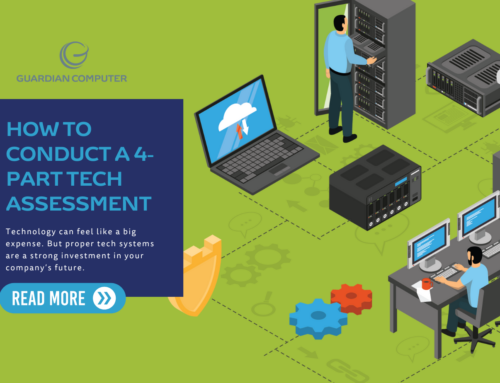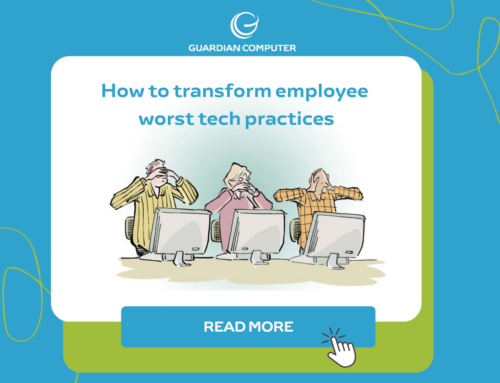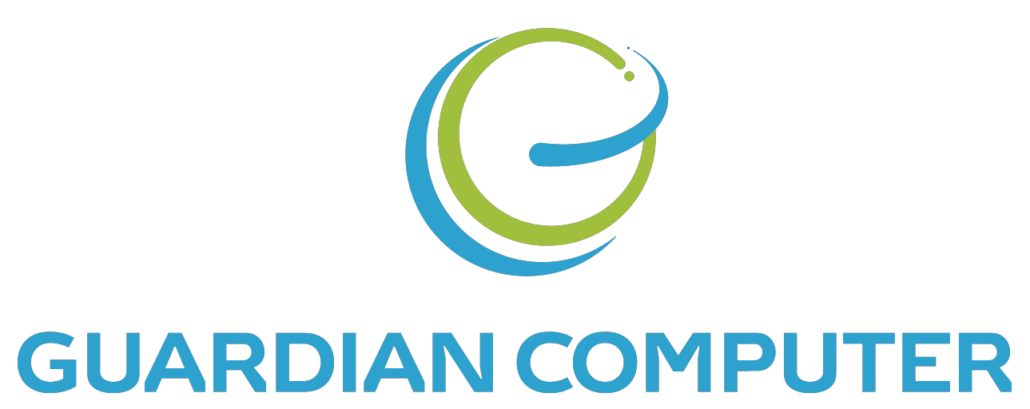Are you devoting enough resources to your organization’s cybersecurity? For many, cybersecurity is one of the most neglected areas of IT budgeting. In ISACA’s State of Cybersecurity 2019 report, 55% of respondents planned to increase their cybersecurity budget over the next year. Even more (60%) indicated their cybersecurity is underfunded.
As a healthcare professional, you know how important it is for patients to balance high-quality care with affordable healthcare costs. This balance also applies to IT services for doctors. Whether you’re streamlining HIPAA compliance with digital technology, or negotiating coverage and quality with insurance companies, you are aware of the constant juggling of cost and security in your industry.
Though often underfunded, cybersecurity is one of the most important aspects of any healthcare organization’s IT needs. When weighing IT services for doctors, physicians and surgeons need to know which security measures are indispensable in order to make the most of their budget.
Keep reading to learn more about the biggest security risks in healthcare today and 6 cybersecurity services and technologies to prioritize with your IT spending.
How Due Diligence Assessment and IT Services for Doctors Improve Purchasing Decisions
Attainia reports that hospitals spend an average of $93 billion per year on medical technologies and their related services, making this a major annual expense to consider. Healthcare professionals know the value of efficient, reliable equipment: it sets the pace of productivity and can help set the standard for quality service when handling patients.
Medical technology is an ever-growing field, where the phrase “the newer, the better” frequently applies. However, investing in brand-new medical equipment and software also comes at a heavy price.
Hospitals and medical practices are constantly battling the cost of their sophisticated medical equipment. Further, more advanced medical technologies also typically require more management and support from IT professionals, increasing their cost in the long term.
Not only that, but healthcare organizations also must maintain the hardware (including everything from computers to keyboards), software (such as Microsoft Windows or Mac operating systems), network, and internet connection required to run their equipment and daily operations.
Fortunately, managed IT services for doctors or a due diligence assessment can help identify your biggest tech-related risks and opportunities. By allowing technology experts to evaluate the entirety of your IT, you can gain the insight necessary to determine:
- Is it better to invest in a new piece of equipment or upgrade your existing tech?
- How much maintenance will any given technology require?
- How long will this new solution last? What is its lifespan?
- Will this technology integrate with your existing systems?
- Does this technology meet or exceed all compliance requirements?
- Where could IT deliver the biggest gains to your productivity, efficiency, and revenue?
- If neglected, which of your IT systems are most likely to cause issues? Which have the potential to cause the biggest crises?
With an informed assessment of these competing concerns, you can efficiently prioritize your IT needs and spending. For many healthcare organizations, cybersecurity is a main area requiring additional investment.
Why Medical Technology and Operations Require More Cybersecurity
Across industries, cybersecurity is often a hard sell because it is an investment that doesn’t produce direct revenue in return. For healthcare organizations juggling the significant costs of medical equipment and technology, the temptation to skimp on cybersecurity is even greater.
But as cybersecurity threats to businesses grow in number and sophistication, hospitals and medical practices can no longer afford to overlook their cybersecurity. In addition to the financial, operational, and publicity risks associated with cyberattacks, healthcare organizations must also contend with potentially devastating HIPAA violations.
Not only that, but hospitals and physicians’ offices are increasingly relying on technology, from cloud-based data management systems, to compliance software, to advanced medical tech. Avoiding cyberattacks and other disruptions can help keep your institution—and the technology it depends on—running smoothly.
Stolen Healthcare Data
The creation of electronic health records has made communication between hospitals, healthcare professionals, and insurance agencies easier and more efficient. However, the quick expansion of digital recordkeeping has also produced a great threat to the healthcare industry as a whole.
Medical software contains protected health information (PHI), such as patients’ birthdates, social security numbers, home addresses, and private medical data. Given the massive amount of sensitive information they handle on a regular basis, industries like healthcare and financial services are major targets for cyberattacks.
HIPAA Violation Costs
When medical facilities face a data breach, public morale isn’t the only issue they have to worry about. HIPAA has strict guidelines when it comes to network security. If found negligent or non-compliant, you could face charges up to $50,000 per violation—or, even worse, criminal legal action.
Healthcare organizations are held liable when a data breach occurs, and the resulting HIPAA fines could cost your facility millions of dollars. When patient information is compromised, lawsuits and settlements add even more to your costs.
System Shutdowns
Healthcare organizations may have to shut down their IT systems if faced with a threat to security. Without access to patient medical histories or full use of medical equipment, hospitals and physicians’ offices are left with little choice but to close until the threat is resolved and all systems are brought back online.
For smaller medical facilities, it’s not uncommon for it to take a full day to recover from a system shutdown and get operations up and running again. This leaves your facility vulnerable to theft and your patients unable to receive care, ultimately resulting in a loss of trust and business.
It only takes a single cyberattack to bring down a slew of serious consequences. As the risks continue to grow, it is critical to invest in proper cybersecurity and other IT services for doctors to protect their medical practices and healthcare organizations.
6 Cybersecurity Needs to Prioritize in Your IT Budget
When developing an IT budget for your healthcare organization, cybersecurity should be a top concern. While cybersecurity is an additional cost to consider, the many costs of falling victim to a cyberattack are much greater. To get started, there are 6 cybersecurity services and technologies we recommend factoring into your budget:
1. IT Due Diligence Assessment
Understanding your needs is vital when allocating funds. An IT due diligence assessment compounds your facility’s standards with a clear assessment of your IT infrastructure, systems, personnel, and processes.
Conducted by IT experts, this full-scale appraisal helps you evaluate the assets you have, determine what you need, and spot security vulnerabilities. With this information, you can develop informed priorities for your IT projects and spending.
2. Employee Cybersecurity Education
Employees are often the first line of defense against a cyberattack, making it always important to devote time and resources to proper cybersecurity education for everyone at your organization. In particular, if your hospital or medical practice is strapped for resources, spreading knowledge and awareness about cybersecurity throughout the entire team is an expense that has wide-ranging benefits.
Often, employees will fail victim to social engineering and expose your network to cyber threats. From simply teaching staff not to open links or attachments from strange emails, to conducting cyberattack practice drills with follow-up education for any missteps, cybersecurity training can thwart a substantial number of threats.
Cybersecurity education can also help support security practices you already have in place. For instance, even if you require longer passwords with numbers, uppercase and lowercase letters, and special characters, your employees may still unknowingly use unsecure practices. They might reuse passwords for multiple accounts, share passwords with others in plain text, leave their password on their desk written on a sticky note, or incorporate information that can easily be guessed in passwords.
Once employees understand the risks and their role in keeping your organization safe, they are much more willing and able to commit to secure practices. When everyone at your hospital or physicians’ office can share this responsibility and knowledge, you greatly increase your security.
3. Antivirus Software
The right antivirus software can make or break an organization. It helps prevent cyberattacks from bots, worms, spyware, and viruses. It fortifies your office computers against network vulnerabilities. Also, it alerts users to potential threats in real time, allowing for faster detection and response.
These capabilities make antivirus software a critical component of your threat detection capabilities, network security, and HIPAA compliance. Moreover, in a time when many employees have had to transition to working from home, antivirus software is an important security measure that can be extended to remote devices.
For medical facilities and hospitals, you want antivirus software that can support multiple users and devices while still maintaining network security. A good antivirus program should also have a recovery feature that will remove an unwanted invasion of your network. This software should have ongoing internet access and be updated regularly for best performance.
4. Database Encryption
Database encryption is an extremely useful tactic for protecting your sensitive information from unauthorized access. Any data stored in your database becomes encrypted, rendering it meaningless to any hackers who manage to access it. When cybercriminals realize your database is encrypted, it can sometimes be enough to keep them from ever trying to attack in the first place.
One way to implement database encryption is to make documents password protected, using complicated passwords to secure documents. With proper cybersecurity education, employees can make this tactic even more effective by creating strong passwords and using safe password practices.
5. Recovery Planning
When all preventative measures fail, your IT should have a recovery plan already in place and tested. Many times, organizations become so focused on stopping attacks from happening that they skip this crucial step.
Your recovery plan should include a designated budget to cover the anticipated costs of a cyberattack. This allows you to act quickly, without having to negotiate or wait for approval before receiving funding. You should also create an action plan, so everyone in your healthcare organization understands their roles and responsibilities in the event of a cyberattack and potential system shutdown.
In the meantime, regularly backing up your data is an important part of building a solid foundation for your recovery plan. This allows you to restore your data quickly, so patients have access to their medical records and you can resume your daily operations.
6. Cybersecurity Managed Services
The first rule of efficient budgeting is to maximize your fixed expenses. It’s dangerous for a budget to have too many fluctuating costs. By outsourcing IT services for doctors’ offices and healthcare facilities, you can take advantage of a fixed expense that adds specialized protection to your network while controlling costs.
Physicians, surgeons, hospital administrators, and healthcare professionals of all kinds have enough on their plates. By finding an IT and cybersecurity provider you trust, you can leave your tech issues to the experts. They should be able to provide ongoing monitoring, evaluation, and support for your systems, so they can fix vulnerabilities before they can be exploited, keep your systems protected and running smoothly, and make sure you’re prepared for the possibility of an attack.
There are many benefits to outsourcing your IT. You gain access to a wide variety of technology experts, who have the world-class tools and expertise to keep your systems secure and meet your IT goals. In addition to keeping your systems up to date, IT support is just a phone call, email, or chat away whenever you experience a tech issue or possible security threat.
Cybersecurity and IT Services for Doctors from Guardian Computer
It’s a tough feat to balance cost and security when assessing IT services for doctors’ offices and hospitals. Outsourcing offers a solution to the problems of unexpected IT issues and expenses, uninformed prioritizing, and overlooked or underfunded cybersecurity.
With Guardian Computer, you can trade downtime for peace of mind. Test out our services with a one-time IT due diligence assessment, so you can see what we find and make an informed decision about how to proceed. If we’re a good fit, you can hire us to complete specific IT projects or fully manage your IT. Just this year, we proudly achieved a place in the 2020 Channel Futures MSP 501 rankings for managed service providers!
Give us a call at 504-457-0005 or contact us online today to discuss a personalized IT plan that best suits the needs of your healthcare facility.







